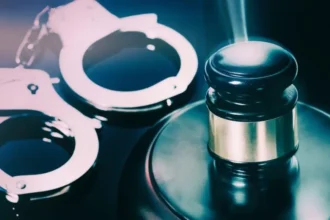Did you get a traffic ticket that you think is unfair?
- Why Traffic Violation Appeals Are More Important Than You Think
- Know Your Rights When Appealing a Traffic Violation
- Step-by-Step Traffic Violation Appeals Process
- Step 1: File a Notice of Appeal
- Step 2: Gather Evidence for Your Appeal
- Step 3: Prepare Your Defense Strategy
- Mistakes That Kill Traffic Violation Appeals
- After You File a Traffic Violation Appeal
- Timeline Requirements for Appealing Traffic Violations
- Final Takeaway About Appealing a Traffic Violation
Welcome to the club. Millions of drivers get traffic citations each year. But here’s the thing that not many people realize…
You have the right to fight those tickets!
The traffic violation appeals process can be your secret weapon for fighting unfair citations, and saving your driving record. But here’s the key…
When you understand how the system works, you can potentially save yourself thousands of dollars in fines and insurance costs.
You’ll Learn:
- Why Traffic Violation Appeals Are More Important Than You Think
- Know Your Rights When Appealing a Traffic Violation
- Step-by-Step Traffic Violation Appeals Process
- Mistakes That Kill Traffic Violation Appeals
Why Traffic Violation Appeals Are More Important Than You Think
Did you know that most drivers simply pay their traffic tickets without even questioning them?
A single speeding ticket can cost you $540+ a year in insurance increases for up to three years. So one ticket alone could cost you more than $1,600 extra dollars!
But it’s not just the money that matters. Traffic violations stay on your driving record for three to five years in most states, and during that time they make your life harder in a lot of ways:
- You pay much higher insurance premiums.
- You risk losing your license if you accumulate too many demerit points.
- If you drive for work, your job can even be on the line.
- The next time you get a ticket, it costs you even more.
A successful traffic violation appeal wipes away all of those consequences. That’s why learning the rules of traffic law, and working with an experienced traffic ticket attorney can be a game changer for protecting your driving privileges.
Know Your Rights When Appealing a Traffic Violation
You actually have legal rights when it comes to a traffic violation. You probably didn’t realize that. The traffic violation appeals process exists for a reason. The system recognizes that mistakes can happen.
Here’s what you need to know:
Every single traffic citation contains information about how to appeal it. In most cases, you have thirty days from the violation date to file your appeal. If you miss that deadline, you have no choice but to pay the fine and late penalties.
The prosecution has to prove “beyond a reasonable doubt” that you committed the violation as stated on the ticket.
You have the right to access all of the evidence against you, including radar calibration records, officer training certificates, dash cam footage, and more.
Step-by-Step Traffic Violation Appeals Process
Here’s the complete playbook for appealing a traffic violation…
Step 1: File a Notice of Appeal
The first step in the process is to file a formal “Notice of Appeal” with the court listed on your ticket. This document simply notifies the court that you’re not accepting the citation.
Some important details to remember:
The deadline for filing a Notice of Appeal is typically thirty days, but this varies by jurisdiction. Some states allow you only fifteen days, while others give you up to sixty days to file. Check your ticket carefully to see what the deadline is.
Filing a Notice of Appeal will usually cost you a fee ranging from ten to fifty dollars. In some states, the filing fee is refunded to you if you win the case. In others, you keep paying even if you win.
When filing the Notice of Appeal, you’ll need to indicate whether you want a hearing with a judge or a trial by written declaration. Each has different strategic benefits and drawbacks.
Step 2: Gather Evidence for Your Appeal
This is where most people screw up their appeals. They show up at court unprepared or base their appeal on emotional arguments and excuses. A winning appeal is built on solid evidence that creates a reasonable doubt.
Evidence that can help your case:
Photographs of the site where the alleged violation occurred, especially if road conditions or signage are at issue.
Witness statements from passengers or other drivers who saw what happened. These can sometimes directly contradict the officer’s account.
Vehicle maintenance records if mechanical issues contributed to the violation.
Weather reports or roadwork notices that impacted driving conditions at the time.
Step 3: Prepare Your Defense Strategy
Not all defense strategies are created equal. Some are consistently effective, while others have little chance of success.
The most effective approaches typically include one or more of these angles:
Procedural errors by the officer or court system. Missing paperwork, failure of the officer to appear in court, incorrect information on the citation.
Equipment malfunctions with radar guns, red light cameras, or other detection devices. Police must maintain regular calibration and testing records.
Necessity defense where you had to violate traffic law to avoid greater harm. E.g. speeding to get someone to the hospital.
Mistaken identity where the officer cited the wrong vehicle or driver. This happens more often than you might think.
Mistakes That Kill Traffic Violation Appeals
You would be amazed at how simple it is to completely throw away your right to a free appeal with just a few key mistakes. Here are the most common ways people torpedo their own traffic violation appeals:
- Talking too much in court. Judges like succinct, factual presentations. Emotional, rambling stories of how traffic tickets are killing your life only hurt your credibility.
- Failing to follow proper procedures. Courts are sticklers for details. Submit the wrong form or miss a deadline and your case gets tossed out, no matter how valid it is.
- Lacking understanding of the burden of proof. Remember, you don’t have to prove your innocence. The prosecution has to prove your guilt.
After You File a Traffic Violation Appeal
What happens next?
Case Review: The court reviews your filing to make sure it meets requirements.
Pre-Trial Procedures: You receive information about court dates, evidence discovery, and any other pre-trial processes.
The Hearing: The hearing itself is your opportunity to present your case to the judge. The vast majority of appeals are decided the same day.
The Decision: You either win and the citation is dismissed, or you lose and must pay the original fine plus court costs.
Timeline Requirements for Appealing Traffic Violations
Timing is a critical part of the traffic violation appeals process. Here’s a look at the typical timeline requirements for each stage:
- Immediate actions. Document everything about the incident while your memory is still fresh.
- Short-term deadlines. File your Notice of Appeal within 30 days. Request copies of all evidence against you within 15 days.
- Long-term timelines. Most appeals are heard within 60-90 days of filing.
Final Takeaway About Appealing a Traffic Violation
The traffic violation appeals process is not just about fighting individual tickets. It’s about preserving your driving record, your insurance rates, and your legal rights as a driver.
Remember:
- File your appeal by the required deadline
- Focus on facts and evidence, not emotions
- Know that the burden of proof is on the prosecution
- Hire a lawyer for serious violations
The traffic violation appeals process gives you a fair shot at fighting unfair citations, and protecting your driving future.

















